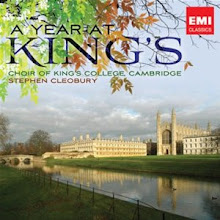I’ve been reading Alan Mould’s book The English Chorister, A History, again and it’s amazing how much ancient information he has managed to find about the various cathedrals and their choirs. The life of a choirboy in those days was often a difficult one filled with hard work and few luxuries. Some of the stories he tells are amusing and some are pretty sad. That the boys stayed with the choir meant either that they loved the music or perhaps that their other life choices were even less favorable.
I was looking at Salisbury cathedral, for example, and learned these things.
At Salisbury, Bishop Roger Martival in 1322 reported that the 14 choristers were not well taken care of and were so hungry that they had to go begging each day at the dwellings of the resident Canons to get enough “victuals to keep the wolf from the door”. They also had to work as domestic servants in the homes where they were lodged.
Bishop Martival improved their situation by providing funds for their welfare, housing them together in one house and in the charge of a warden who would educate them a bit and see to their needs.
In 1519 a serious outbreak of the plague afflicted the Close at Salisbury and several choristers fell ill. At least one died.
The period of high inflation during the late 16th century caused a lot of poverty which in turn caused cathedrals to cut back on the care of their choirs. By the early 17th century Salisbury still retained a house for its boys but there was only one resident. The rest had to find lodging with whatever friend they could.
At Salisbury, their master of choristers, Thomas Smythe was reported to be frequently “quarrelsome in choir… and author of dissention and brawling between the vicars of our church and was a swearer and a drunkard and up all night and player of dice openly and publicly…”
He also got in trouble for engaging in a stone fight with the wife of the organist.
His successor, John Farrant, was also no role model for the boys. There is a great account by one of the choristers describing Farrant’s leading him, in the middle of a service, to the dean’s house and threatening the dean with a knife, tearing his gown and then going back to finish singing the service.
Also at Salisbury in the mid-1680’s a chorister, John Freeman, had a run-in with an unpleasant vicar choral, William Powell, who “reacht over the seate and caught him by the haire and pulled his head back against the seate, and struck his face agst the seate with such force as caused his mouth to bleed, and called him ‘bastard’ which caused him presently to cry.”
The boy’s father made a fuss, not over the abuse but over the term ‘bastard’.
I don’t think I would care to live in ‘ye days of olde‘.
Sunday, August 16, 2009
Subscribe to:
Post Comments (Atom)













boy, you a choir singer or somthen? me an bess loves the choirs, we sing in church, well i do bess plunks the piany, any ways you keep sigin and we like the way your proud of yer upbrigin. now you gone and done it, bess saw that pikure of sat evnin post, now i gotta go to the flea market and find a copy
ReplyDelete